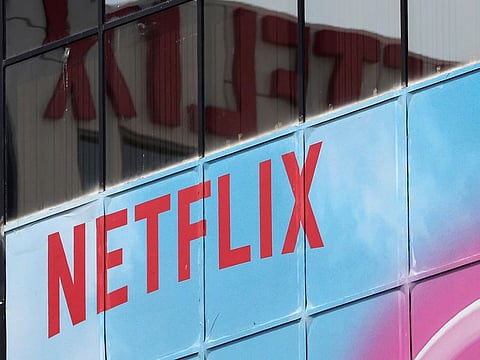The ‘Netflixing’ of customer experience
It’s use of algorithms is the touchstone for other brands to build a loyal following

As the world comes to the end of another week in lockdown, you can now almost hear the daily sighs of relief that we live in an era where Netflix is on hand to relieve the boredom. Whether you’ve been mesmerized by Michael Jordan’s brilliance in “The Last Dance” or appalled by Joe Exotic’s antics in “Tiger King”, you’ll have surely been able to find something to keep you entertained for at least some of the time.
That’s because Netflix offers an exceptional customer experience (CX), intuitively filling your homepage with suggestions tailored especially for you and enabling you to watch favorite shows seamlessly across multiple devices. It wasn’t always this way, however. The firm started life in 1997 as a DVD-by-mail rental service, engaged in a bitter battle for supremacy with Blockbuster.
But even in its earliest days Netflix had a singular focus on beating its more established rival by providing a superior customer experience.
Full focus
Back then, that meant developing strategically located logistics hubs to enable next-day delivery. And as the firm pivoted to online streaming in 2007 with a library of just 1,000 titles, it maintained an unwavering conviction that its complex CX-enabling algorithms would eventually win out.
The rest, of course, is history. But it serves as a fascinating example of how, in today’s technologically driven world, the experiences that customers receive from a brand are critical in determining their continued engagement.
Where product functions used to be a key purchasing criterion, the abundance of copycat products means there isn’t much left for consumers to base their choices on. And where price used to be a differentiating factor, digital marketplaces that can instantly find and match any price have largely removed that aspect as a differentiator.
Managing the CX
For the foreseeable future, then, brands will be competing for customers and loyalty based increasingly on the experience the customer receives. It’s critical for companies to remember that every customer exists as part of a community and informs that community about their experiences, good or bad, across an increasing number of channels. The net result is that every single customer experience matters.
Technology is playing an increasingly key role in the customer experience. Customers are more technologically connected than ever before, with powerful tools in their hands, on their laps, and on their desktops — from phones and tablets to smart speakers and wearables. And how customers are using technology is changing, meaning many businesses are having to play catch-up.
Capture the emotion
At the same time, businesses are realizing that they need to up their game not only in terms of the technologies they deploy, but also the outcomes that come from those. With this in mind, IDC expects two-thirds of leading consumer brands to employ emotion detection and management technologies within the next five years in a bit to better understand consumer emotions and shape the customer journey.
Another area where the market’s digital pioneers have excelled is data. Data is essential to shaping engagement as it sets the framework from which context and intelligence is defined and experiences and solutions are delivered. But while data sits at the heart of a digital experience, it is technology that enables the analysis and delivery.
IDC research shows that businesses worldwide planned to spend $1.4 trillion on digital transformation efforts this year. And of the business processes that are being transformed, CX tops the list — ahead of marketing, finance, and operations. This is because almost every business function being digitally transformed is in some way tied to the customer experience.
Netflix’s success has been built on an obsession with putting the consumer at the center of everything it does. Whether it’s refusing to show ads, making all episodes available at once, or making it easy to cancel subscriptions at any time, Netflix consistently puts the wishes of the consumer first and subsequently reaps the rewards.
This unflinching focus on customer centricity is crucial for any business looking to drive digital transformation and ultimately facilitate the delivery of a superior customer experience.
- Jyoti Lalchandani is regional Managing Director at IDC.







